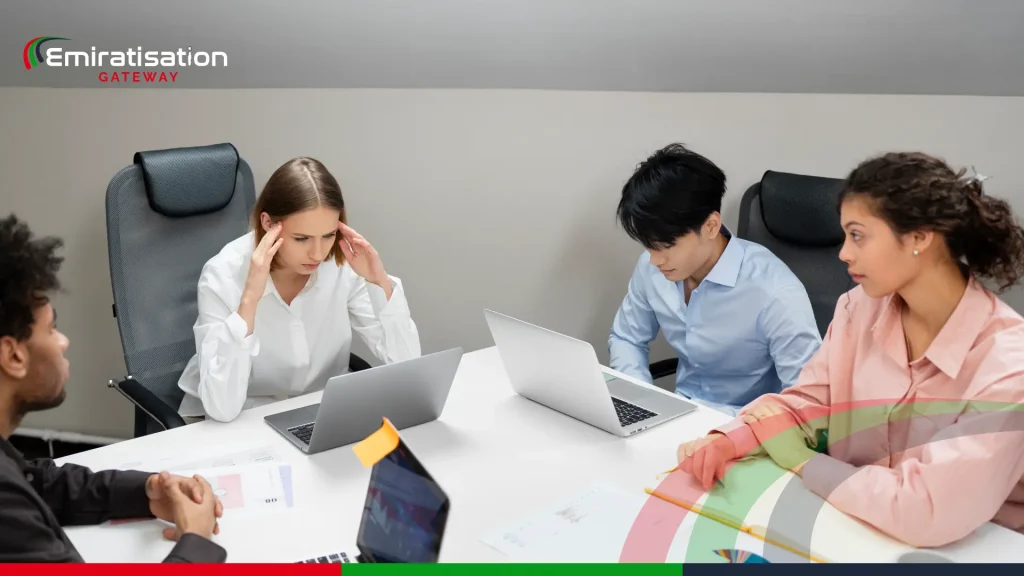Article 29 UAE Labour Law concerns paid leave for workers. It states that workers who have completed one year of employment are entitled to thirty days of paid yearly leave. This clause strives to guarantee workers have enough time to relax and recharge, encouraging a good work-life balance. The employer normally determines the date of the absence based on operational demands. Employees may, however, request particular leave dates, which companies are typically obligated to meet whenever feasible.
An Overview of Leave Clauses Article 29 UAE Labour Law:
Whether the employee chooses to use the leftover or be reimbursed for leave in line with the organization’s rules and the executive regulations of labor Law, the company may not prevent the staff from using his accumulated annual leave.
If a worker leaves his job before utilizing his leave, he is entitled to money for the remaining leave days he did not use, regardless of how long it was. The employee has the right to obtain leave pay based on the term of service, calculated using the basic wage. Employees in the UAE are entitled to a full thirty days of annual leave each year. This rule respects Article 29 (1) of the UAE labor law.
Employees who have unused yearly absences may be entitled to cash-in replacement. The amount is determined on the basis of the employee’s basic monthly remuneration. In some cases, especially when handling urgent situations, employees can also consider how Emergency Leave in UAE policies interact with their unused leave. If the employee prefers not to take annual leave, they may agree to receive remuneration from the employer.
Under Labor Law’s Article 29(8), the company cannot hinder the worker from using his earned annual leave for more than two years unless the worker is required to use it over or be paid rather than leave as specified by the UAE executive regulations.
Employee Rights and Security: UAE Labour Law Review
According to article 29 (1) UAE labor law, leave compensation entitles workers to their entire monthly income, including basic salary and incentives, if they undertake their yearly leave for a month after completing twelve months of service.
This provision guarantees that workers may take an appropriate holiday without worrying about their finances, encouraging a good work-life balance.
Employee Legislative Security and Monitoring
Comprehensive statutory safeguards, law execution, evaluation, and reporting procedures are in effect to guarantee that workers are handled with dignity and without discrimination. Measures also allow employees to report conflicts and incidences of abuse in confidence.
The law also expressly restricts forced labor, companies from withholding staff documents, physical harassment, and other forms of physiological, verbal, and/or emotional abuse of employees.
The UAE ratified the worldwide commitment to safety and is striving to fulfill all its goals, demonstrating its commitment to advancing workers’ rights. These include adhering to worldwide labor hiring standards, notifying workers of their rights and responsibilities before they travel to their home countries, and ensuring secure and dignified working environments.
Labor Compliant Services:
The UAE has built a labor complaint service that uses comprehensive smart technology to guarantee that labor laws are followed in the private sector. People may file complaints online, reducing the need for inspections and reaching workers across all regions. The MOHRE evaluates complaint data, and matters that cannot be resolved amicably may be sent to one of three UAE litigation courts.
Digital Transformation and Online Services
The MOHRE has digitized almost all its services, making them available via mobile applications, websites, and service centers. The employer’s dashboard includes details about facilities, domestic worker statistics, reports, personnel data, and pay security. Transactions may be signed and concluded via the app, allowing employees and employers to conduct transactions anywhere in the UAE. The program also enables companies to examine monthly wage protection statistics, including payment information.
Commitment to Employee Health and Well-being
The UAE emphasizes employee safety and health through an effective and broad approach that adheres to international standards, including continuing improvements in technology to reduce manual error and providing labor inspectors with the necessary training to protect workers in the workplace.
Employers in the UAE must also offer health insurance to all workers, maintain safe working conditions, and provide essential equipment to avoid physical injury or possible damage to employees.
House Maids and Domestic Workers’ Rights
The UAE understands the significance of safeguarding the rights of domestic workers. The UAE Federal Law imposes strict regulations on recruiting agencies and employers, detailing their responsibility to avoid domestic worker exploitation.
Domestic workers in the UAE have particular protection against monetary abuse, harassment, and forced labor, and their rights are safeguarded before the law. Employers are legally responsible for conveying the contract conditions, nature of the employment, workplace, remuneration, and daily and weekly leave to the domestic worker they want to hire. The legislation mandates that such details be communicated to workers before they get hired and leave their native country.
In addition to the broad protection afforded to all UAE residents, the legislation grants domestic workers extra rights. Domestic workers have the right to obtain a minimum of twelve hours of rest each day, to be reimbursed for medical expenses, and to be compensated for the cost of a return ticket to their home country every two years.
The legislation also requires employers to provide adequate food and shelter for domestic help, and it prevents employers from keeping workers’ identifying papers, such as visas, permits, passports, and Emirates identity cards.
How Emiratization Gateway can assist you with legal rights of employment in UAE
The Emiratization Gateway mainly aims to increase Emirati worker participation in the private sector and promote worker’s rights in the UAE. By encouraging ethical hiring practices and ensuring legal compliance with labor regulations, particularly those provided in Article 29, the Emiratization Gateway helps to create a more equivalent and peaceful working environment for all workers, including Emiratis.
Conclusion
Article 29 UAE labor law is a significant component of the workers’ rights regulations. It defines a basic entitlement to leave, including every year’s leave, medical leave, and leave for holy events and national holidays. This provision guarantees that workers may relax, recover, and maintain a good work-life balance, improving their overall well-being and performance.
FAQs
What is Article 29 in UAE Labor Law?
Article 29 UAE Labour Law defines worker benefits, such as yearly leave, medical leave, and leave for holy occasions and national holidays.
Is annual leave allowed for part-time workers in the UAE?
The part-time worker has the right to acquire leave every year based on the actual working hours spent for the employer, with the duration stipulated in the hiring contract.
Do UAE employers determine worker’s leave time frame?
Yes, companies have the right to select when an employee may take a break based on job needs under Article 29. The employer must inform the employee of the designated days for his or her monthly leave.






